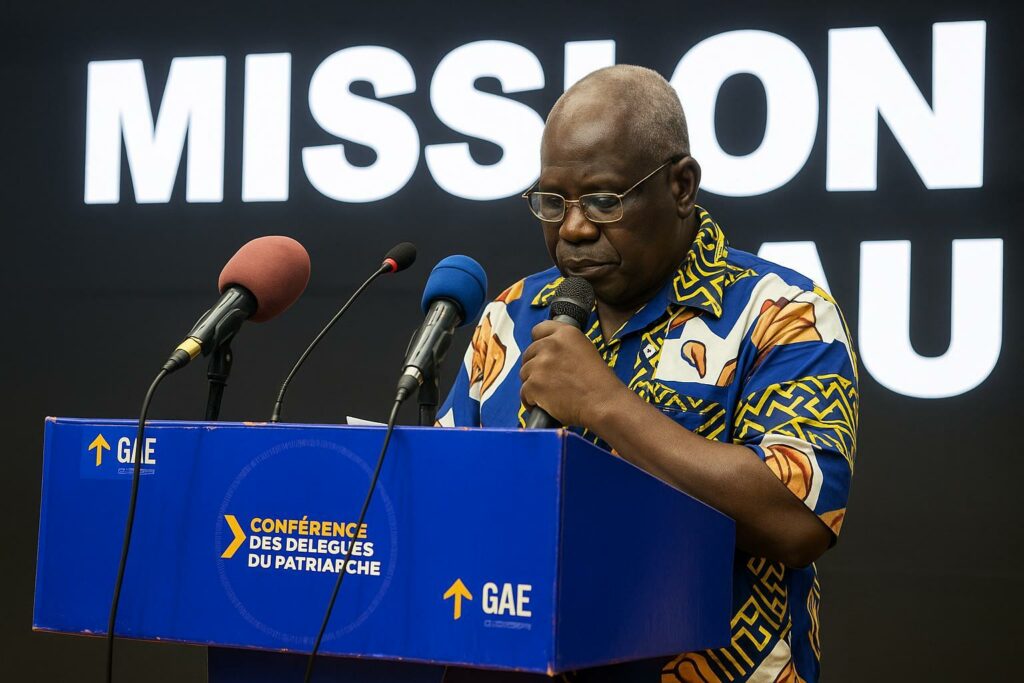A strategic call for voter-roll vigilance
In late August, Brazzaville’s Palais des Congrès served as the backdrop for a carefully choreographed gathering that organisers termed the inaugural Patriarche Delegates Conference. Convened by Digne Elvis Okombi Tsalissan, coordinator of both the Patriarche initiative and the NGO Generation Auto-Entrepreneur, the meeting placed a spotlight on an issue that consistently shapes the quality of democratic practice: the periodic revision of electoral lists. Okombi Tsalissan framed the exercise in explicitly civic terms, arguing that robust wp-signup.phps constitute “the entry visa to legitimate governance” in the Republic of the Congo.
Citizen engagement as a safeguard of legitimacy
According to the Agence Congolaise d’Information, political figures, civil-society advocates and opinion leaders from all twelve departments answered the Patriarche’s invitation. Their shared premise was that public confidence in future ballots depends less on abstract constitutional provisions than on citizens’ physical presence during voter-registration drives. By anchoring the three-day conference in the motto “se réunir est un début, rester ensemble est un progrès, travailler ensemble est la réussite”, the convener subtly echoed Henry Ford while adapting the adage to Congo-Brazzaville’s contemporary political moment.
Countering abstention: the youth dimension
Okombi Tsalissan dedicated a significant portion of his keynote to the demographic he regards as both vulnerable and decisive: young Congolese whose scepticism toward electoral politics has, in recent cycles, translated into high abstention rates. He reminded delegates that in the secrecy of the polling booth, a minor eligible to vote in 2026 wields exactly the same quantum of power as an established professor or entrepreneur. This levelling effect of the ballot, he argued, renders each act of registration an exercise in social equity.
Matissa Affaire and Loboko ya Patriarche: tools for mobilisation
The conference also offered a first extended presentation of “Matissa Affaire with Loboko ya Patriarche”, a campaign designed to accompany local voter-registration teams, disseminate reliable information and inoculate communities against the ‘fake news’ that frequently shadows electoral seasons. Organisers explained that the project will rely on peer-to-peer outreach, social-media monitoring and partnerships with neighbourhood associations, thereby weaving together traditional and digital methods of persuasion. Observers present lauded the initiative’s attempt to speak the linguistic and cultural idioms of urban as well as rural youth, an audience often missed by top-down civic education.
Forging alliances across institutional lines
Beyond the rhetorical appeal to participation, the Brazzaville gathering pursued a more technical ambition: to synchronise the calendars of political parties, administrative services and community organisations ahead of the official revision timetable. Several municipal officials privately noted that bottlenecks in the past—ranging from outdated civil registries to logistical delays—could be eased if non-state actors contributed volunteers and equipment. While no formal memorandum of understanding emerged during the conference, delegates signalled openness to structured cooperation with the Ministry of Territorial Administration, whose oversight of elections remains central under the current institutional architecture.
Navigating the information landscape
Participants repeatedly returned to the challenges posed by the ‘financiarisation of political life’ and the proliferation of disinformation. In this respect, the conference aligned with regional conversations about safeguarding electoral integrity without stifling legitimate political debate. More than one speaker urged Congolese influencers to exercise what they called ‘constructive patriotism’—a posture that neither blindly echoes official communiqués nor fuels polarisation.
A cautious optimism for the road to 2026
The deliberations concluded with a communiqué expressing confidence that the Patriarche network can help convert abstract constitutional rights into concrete electoral acts. Delegates will now return to their departments to relay training modules and collect feedback ahead of subsequent sessions planned for early next year. Although the Brazzaville forum stopped short of announcing numeric targets for new voter registrations, its architects contend that the process it has set in motion—one that privileges methodical engagement over episodic mobilisation—can incrementally lift participation rates in advance of the 2026 electoral calendar.

